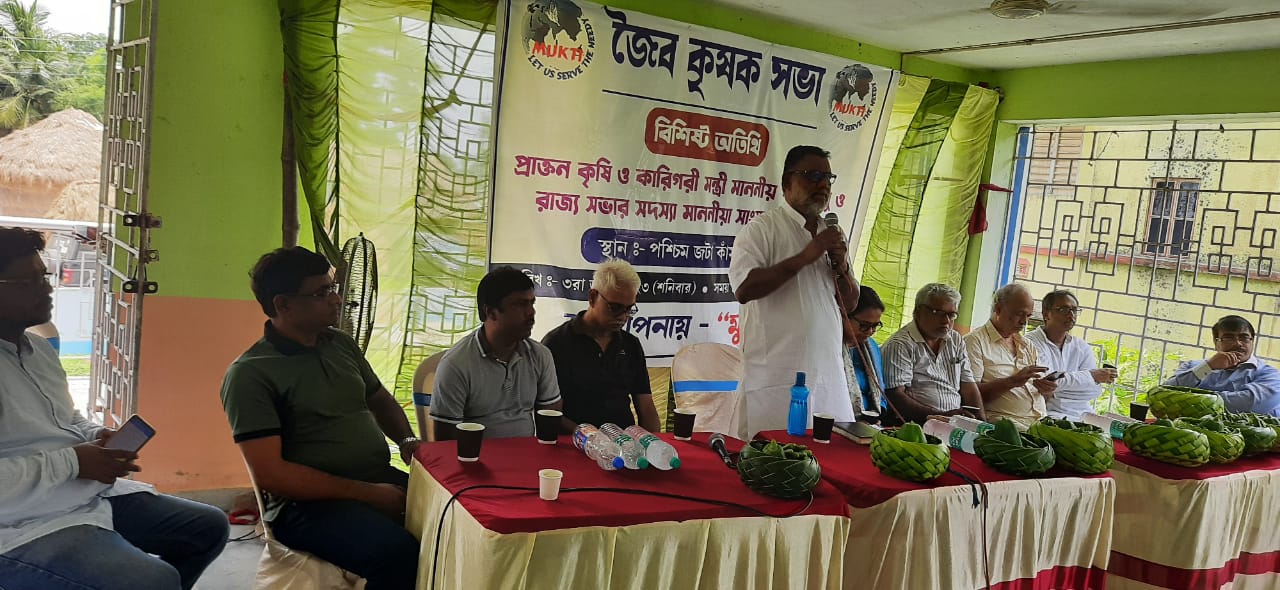

Workshop on Sustainable Agriculture Techniques
Mukti, a leading organization dedicated to promoting sustainable agriculture, successfully organized a transformative workshop on “Sustainable Agriculture Techniques” on June 3rd, 2023, at the scenic Mukti Gram Purba Sridharpur. The event, which commenced at 11 am, attracted a distinguished gathering of esteemed individuals, including Mr. Purnendu Bose, the Honorable Ex Agriculture Minister of the WB Government, and Mrs. Dola Sen, the Honorable MP of Rajya Sabha. Additionally, 22 delegates from various organizations and a remarkable participation of 150 Mukti organic farmers enriched the workshop with their presence and active engagement.
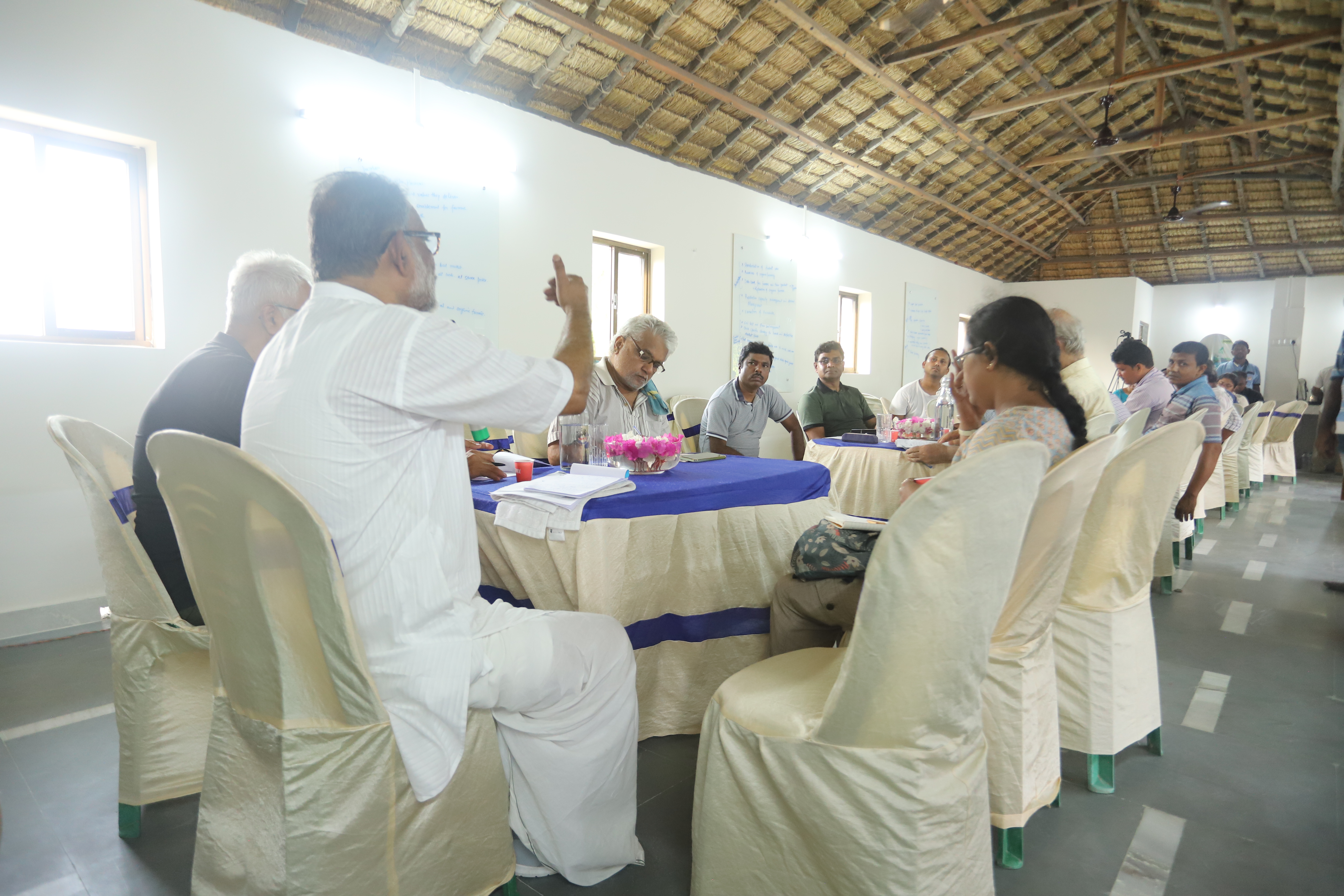
The workshop’s agenda was carefully crafted to address crucial topics, such as discussing the follow-ups from the previous meeting, exploring new opportunities, and bolstering the Susthaee Krishi Paarivar and Mass Movement for Ecological Agriculture practices. The notes compiled during the workshop highlighted several key areas of focus, emphasizing the need to mobilize a mass movement for ecological agriculture practices. The participants also expressed the importance of establishing an enabling technological and research platform for farmers, with a specific emphasis on engaging research scholars to address ecological agriculture issues effectively.
To pave the way for affordable agriculture and products accessible to all, the workshop participants underscored the significance of glorifying the profession of Krishi (agriculture) in our society. They also emphasized the need for holistic health development for farmers, promoting organic agricultural products through setting up stalls in local markets, and ensuring price parity between organic and chemical-based agri products. Expanding the outreach of organic products through the establishment of an online marketplace and providing cost-effective logistics solutions for farmers were also seen as crucial steps.
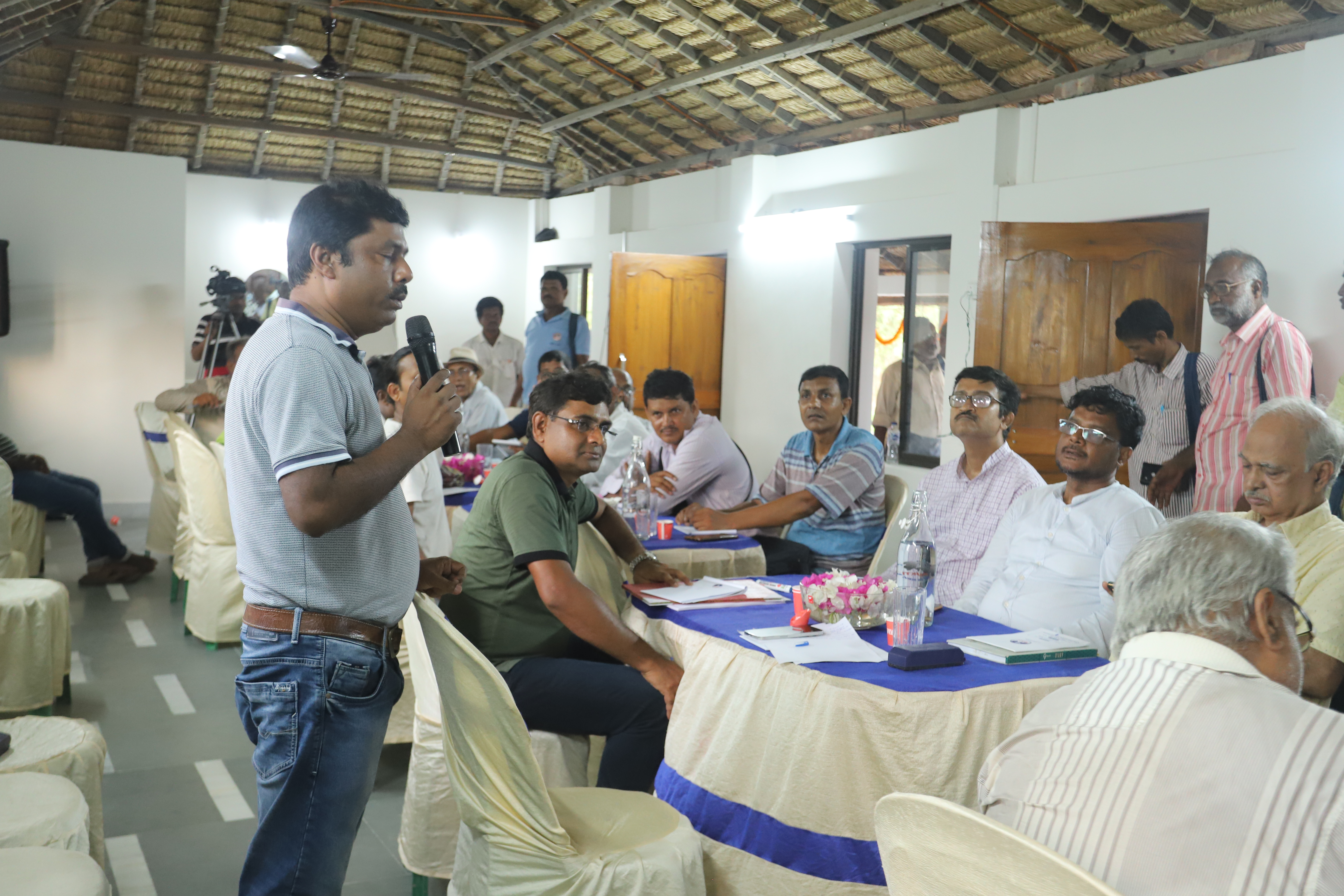
Participants recognized the need to create a framework for cost comparison between ecological and industrial agri products, aiming to make ecological agri products more cost-effective than their chemical-based counterparts. They also discussed the importance of practicing multi-cropping to retain soil quality, implementing local community-based organic certification processes to build trust, and actively involving more women in ecological agriculture.
The workshop attendees advocated for the promotion of ecological agri products for midday meals, enabling healthy food choices for children. They emphasized the development of adaptive techniques in agriculture to address the challenges posed by climate change and the advancement of ecological pest control methods. Additionally, participants called for the development of techniques for high-yield ecological agricultural products, establishing a framework for standard agri-product pricing, and launching campaigns to encourage organic farming.
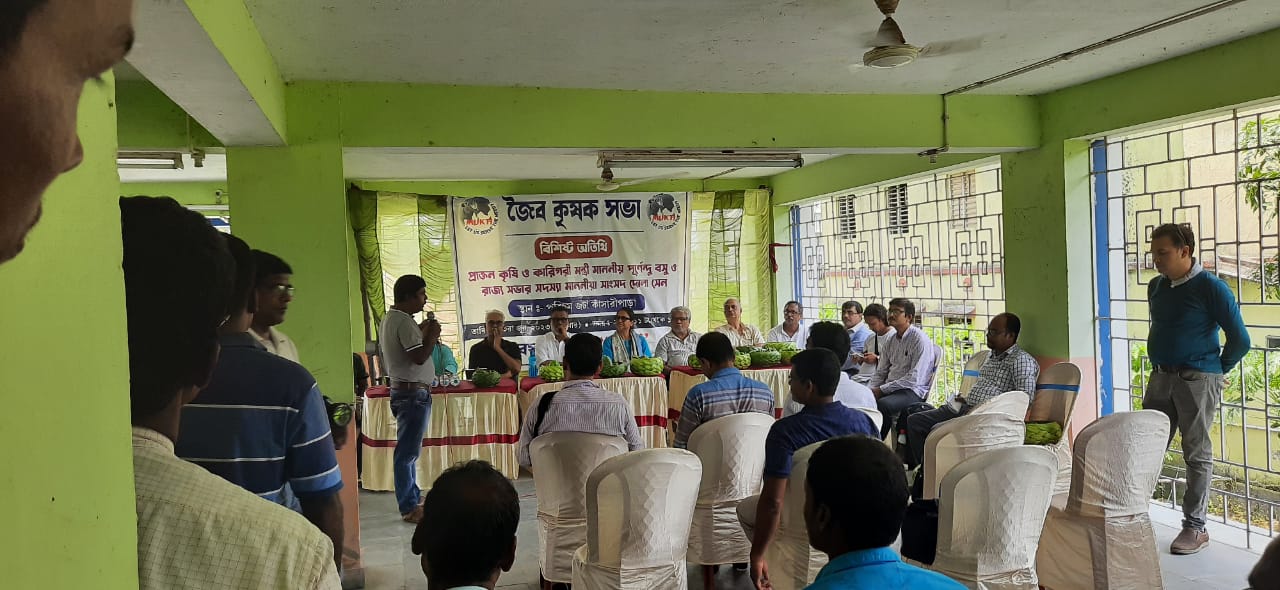
Recognizing the value of data, the workshop emphasized the need to build a comprehensive database for farmers and their products. Moreover, controlling attrition among organic farmers and highlighting their efforts in creating a healthier society were discussed as essential components of the movement. The participants stressed the importance of capacity and demand management, as well as the development of frameworks for soil and seed quality management. They emphasized the promotion of area-specific products based on the strengths of individual farmers and the local environment.
To avoid cross-pollination between ecological and chemical-based crops, participants emphasized the need for comprehensive campaigns to promote full ecological agri practices in specific areas, ensuring 100% participation from farming communities. Moreover, they emphasized the importance of advocating for organic adoption among both rural and urban consumers. The workshop concluded by emphasizing the urgency of adopting time-bound actions and implementing them effectively.
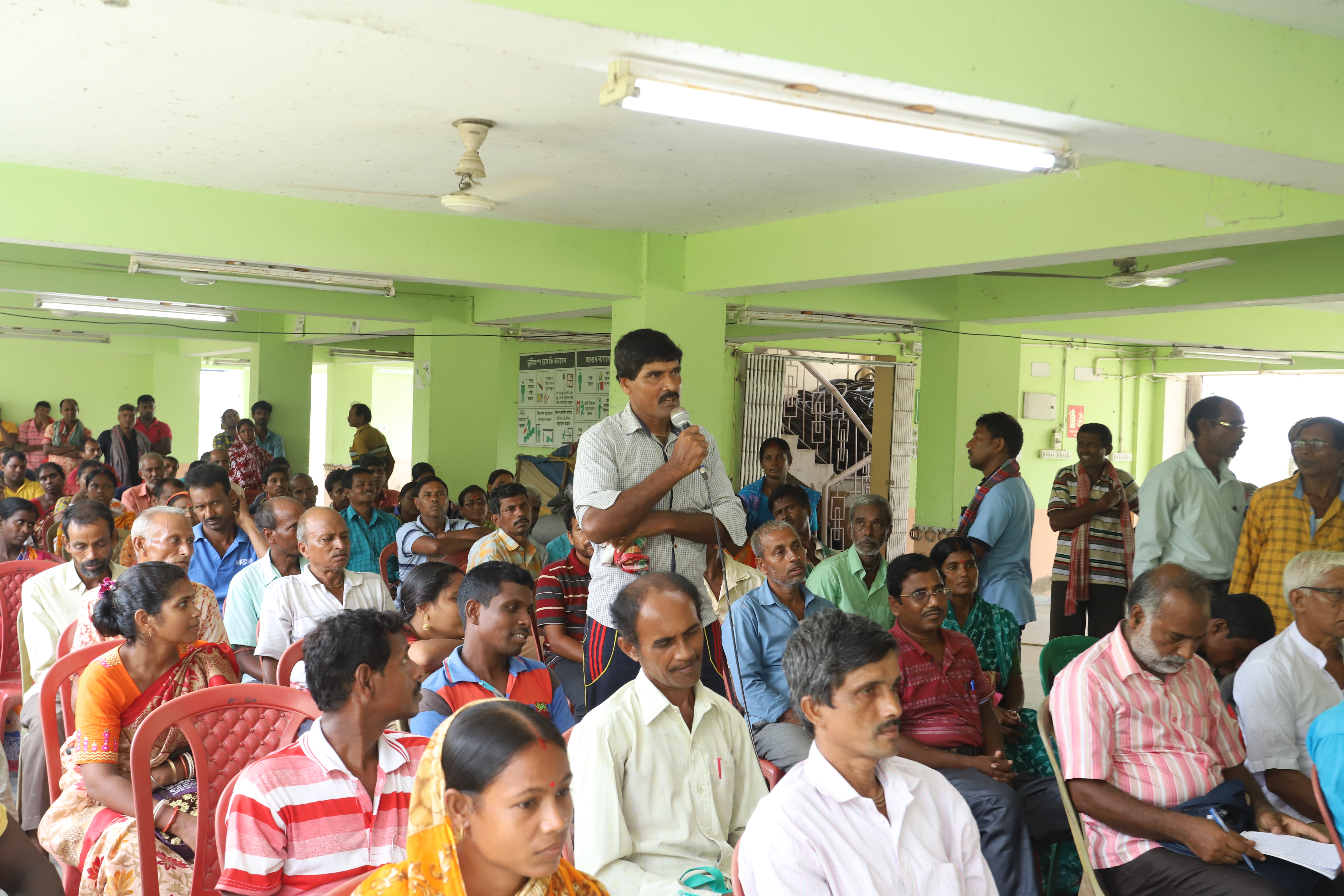
Notable points from Shri Purnendu Basu’s inspiring speech included advocating for input substitution into organic compost/fertilizer/bio-fertilizer, encouraging the use of vermiculture and cow-based composting techniques, promoting multi-cropping practices, utilizing bio-agents from lab to field, incorporating nitrogen-fixing crop rotation, employing biological/botanical methods for pest control, establishing neem processing units in villages, prioritizing seed preservation and the use of heirloom seeds, implementing bio-fencing, and utilizing agricultural residues effectively.
The workshop culminated with a set of action items to be undertaken collaboratively:
- Restoring ponds extensively before the rainy season.
- Each organization commits to planting a minimum of 200 saplings.
- Mapping ponds for biodiversity conservation.
- Mapping cattle for better diversity management.
The workshop left an indelible impression on the participants, sparking enthusiasm and commitment to embracing sustainable agriculture practices. With the collective efforts of all stakeholders involved, the vision of a thriving ecological agricultural ecosystem and a healthier society can become a reality.
Project Activities
- About Mukti (2)
- Accreditation (31)
- AGM (63)
- Agriculture Reforms (16)
- ahm2017 (4)
- ahm2017news (2)
- ahm2017runners (2)
- ahm2018runners (1)
- Ambulance Service (2)
- Amplifying Community Voices (9)
- Awards (22)
- Awareness and Empowerment (13)
- Awareness drives (1)
- Book-Bank (13)
- Careers (8)
- CARR (32)
- Ccp1011 (4)
- Chick Rearing Programme for Marginalised Women (5)
- Climate Resilience River Embankment (1)
- Coaching Center (102)
- Community Clinic (2)
- COVID19 (62)
- Cyclone Amphan Relief and Rehabilitation (129)
- Cyclone Bulbul Relief (30)
- Cyclone Relif (2)
- Cyclone Yaas Relief and Rehabilitation (68)
- Editorial (21)
- Editorial by Abir Biswas (1)
- Editorial by Ankita Kothiyal (1)
- Editorial by Kasturi Bakshi (1)
- Editorial by Prof. Pradeep Ray (1)
- Editorial by Ranitendranath Tagore (1)
- Editorial by Sankar Halder (10)
- Editorial by Satyajit Ray (3)
- Editorial by Sohini Mehta (1)
- Editorial by Soumitra Bose (1)
- Editorial by Subhankar Basu (1)
- Education and Enrichment (34)
- Environment and Resilience (9)
- Essential Items Distribution (19)
- Fair/Exibition (1)
- Featured Activities (10)
- Go Green (81)
- Gram Clinic (2)
- Green (20)
- Health (8)
- Health Water & Sanitation (17)
- Hello Beta (1)
- Impact Stories List (31)
- Integrated Development (11)
- Jal hi Kal (2)
- Kerala Flood Relief (3)
- Kitchen Gardening (2)
- Livelihood & Enablement (20)
- Marathon (13)
- MCDF (14)
- Mcdf (112)
- Mcom (6)
- Medical Camp (8)
- MIT (3)
- MKSS (6)
- MSS (11)
- MUKTI Community Shop (1)
- Mukti Craft (2)
- Mukti Cultural (1)
- Mukti Employment (2)
- Mukti Fresh (2)
- Mukti Gram - Egra (2)
- Mukti Gram - Purbashridharpur (8)
- Mukti Gram, Model Village (136)
- Mukti Green (6)
- MUKTI Institute of Technology (MIT) (3)
- Mukti Kishalaya (2)
- Mukti Support (1)
- Mukto Dhara (1)
- NaRKEL (9)
- Obituaries (4)
- Observance Days Celebration (10)
- Organic Farming (3)
- Organic Farming & Training Support (8)
- Pandemic Support (2)
- Pond Rejuvenation (1)
- Prerana (4)
- Projects For Mukti Wide (3)
- Rights and Special Needs (19)
- Riste (2)
- RTI (14)
- Sahosini (3)
- SAM (9)
- Sam (89)
- SDF (9)
- Skill & Enterprise Development (2)
- Skill Enterprise (2)
- star-of-the-week (9)
- STEP (1)
- Success Stories (39)
- Success Story Coaching Center (1)
- Success Story MCDF (6)
- Success Story RTI (1)
- Success Story SAM (9)
- Success Story TSS (20)
- Sundarbans Green (SUN-G) (1)
- Sunderban development fair project (7)
- Sustainable Agriculture (2)
- SWAS (2)
- SwasthoSongini (4)
- Swavlamban Accelerator in Sundarbans (SWAS) (2)
- Talented (2)
- Tour for Cause (31)
- TSK25 2017 (7)
- TSK25 2017 Runners (7)
- TSS (17)
- TSS (112)
- Uncategorized (59)
- Valued Partners (3)
- Vclpk (1)
- Vetp (2)
- View (2)
- VOICE (2)
- workshop (109)